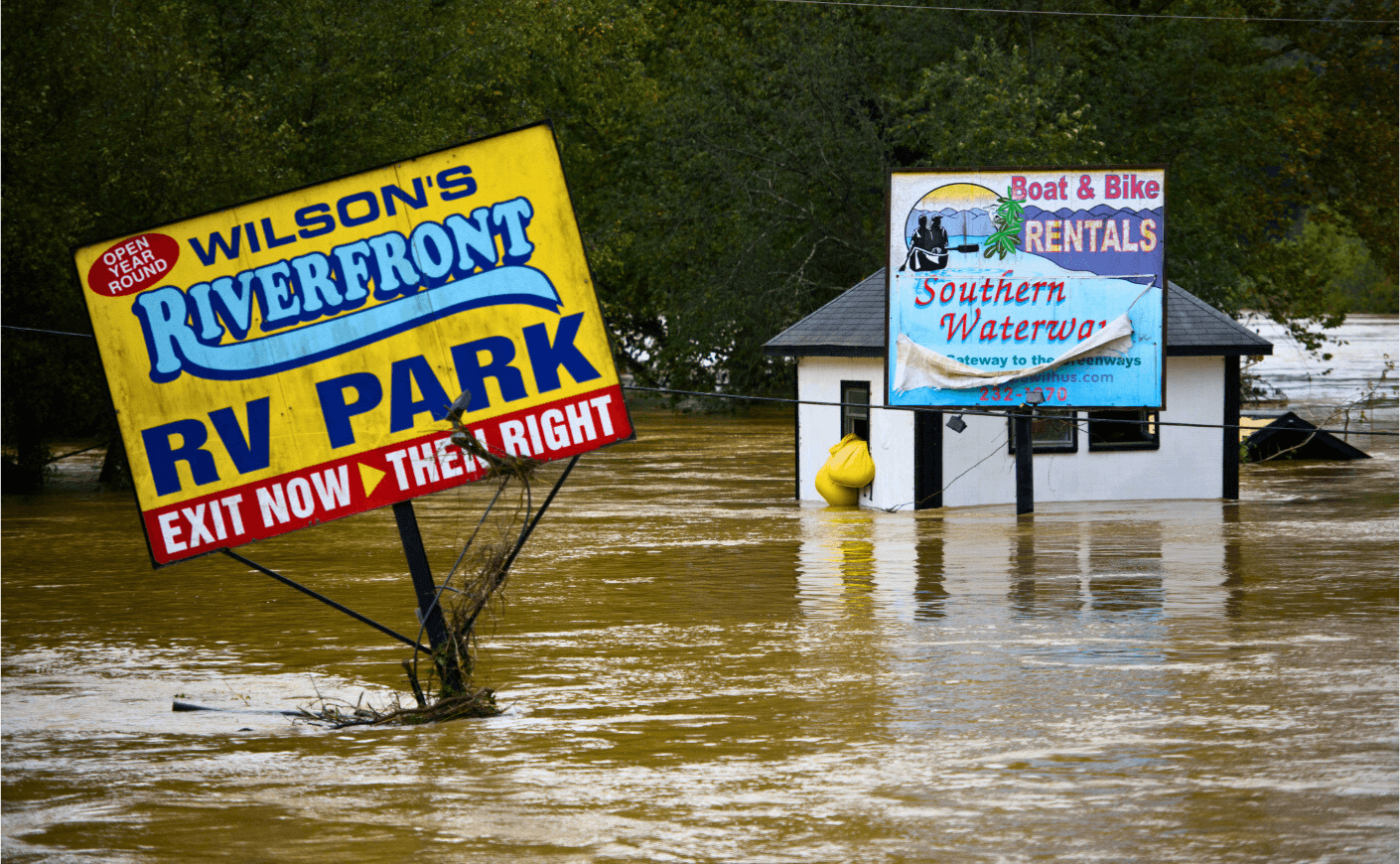Hurricane Helene has wreaked havoc across the Southeast, leaving more than 100 people dead across six states, including Georgia, Florida, and Virginia. Countless survivors haven't been able to contact their loved ones due to cell-service outages, and millions more have been left without power or basic necessities like fresh drinking water. Now, urgent rescue and recovery efforts are underway in some of the hardest-hit areas, including Asheville, North Carolina.
As heartbreaking footage of devastated homes and communities continues to surface, you might be feeling helpless, but there is something you can do. The Federal Emergency Management Agency (FEMA) has said that giving cash is better than donating other items (like clothing), because organizations on the ground can use those financial contributions where they're needed the most.
"Organizations on the ground know what items and quantities are needed, often buy in bulk with discounts and, if possible, purchase through businesses local to the disaster, which supports economic recovery," the agency states on its website.
If you're ready to take action and need some suggestions, here are organizations currently aiding relief efforts.
National support for hurricane victims
The Salvation Army is responding to the devastating storm by providing emergency supplies, such as food and water as well as emotional and spiritual care. Your donation may also support long-term recovery programs, such as repair and reconstruction programs.
More than 1,000 Red Cross workers have been deployed to help those in the affected areas, with likely more on the way. The nonprofit is working to open shelters and provide meals to those who've been left homeless by the storm. It's also encouraging other communities to donate blood, after drives were put on hold due to the storm.
Local relief organizations for Hurricane Helene
North Carolina Disaster Relief Fund
North Carolina Governor Roy Cooper has encouraged people to donate money to the state's Disaster Relief Fund. These contributions will be directed toward nonprofits working to help residents recover from the damage by offering food, water, and cleaning supplies.
Support has been particularly challenging in the state because some areas are only accessible by air. "The emotional and physical toll here is indescribable," Cooper told CNN.
The Community Foundation of Western North Carolina
The non-profit provides western North Carolina with "unrestricted charitable purposes" across 18 counties. Contributions can be made directly on their website.
Florida Gov. Ron DeSantis has activated the Florida Disaster Fund to help support "response and recovery activities" in local communities. Though this is where the storm first made landfall, DeSantis says officials are already making progress with its recovery efforts, and power has already been restored to 99 percent of the state.
Send Relief, a nonprofit in Georgia, is deploying critical resources—including food, water, and debris removal—to those affected by the brutal storm. Like North Carolina and Florida, the state saw widespread flooding and destruction, prompting several water rescues. On Friday, Gov. Brian Kemp’s office declared that Hurricane Helene was the deadliest tropical storm to hit the state since 1994.
Other organizations working to help hurricane victims
Save the Children is working specifically to help babies and young kids impacted by the hurricane. This includes providing families with diapers and baby wipes as well as schools with classroom cleaning kits. It's also helping to provide mental health support for kids and their caregivers.
When there's a disaster, you can trust that Chef José Andrés' global food relief organization is on the scene, offering hot meals to survivors and first responders. In fact, his teams were in Steinhatchee, Fl, less than 12 hours after Helene hit the town.
Found a charity but want to make sure it's been vetted? You might want to check out Charity Navigator, which evaluates and rates charities based on their cost effectiveness and efficiency.









